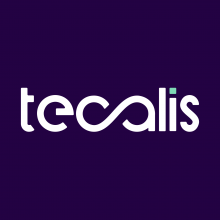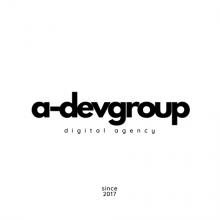
There are 62 Companies in Spain
that provide Angular Development Services!
Spain is one of the most important ICT markets in Europe, in terms of volume. In 2025, the net worth of the entire sector was estimated at around $62.9 billion. This makes it an important national economy. According to a report from ICEX, there are more than 34,000 ICT companies in Spain that engage 550k+ workers in this field.
Discover Top IT Companies in Spain specialized in Angular and other related services. Find the best IT service providers for your projects.
Angular (formerly AngularJS) is a popular open-source web application framework maintained by Google and a community of developers. It's used for building dynamic, single-page web applications (SPAs) and web-based applications in general. Angular provides a structured and organized way to create complex web applications by extending HTML with additional features and enabling the development of interactive, responsive, and maintainable front-end web interfaces.
Handpicked companies • No obligation to hire • 100% risk-free
Featured Companies in Spain
This month, the following Angular Development companies managed to provide an outstanding service and support. It's worth taking a look.
Explore Top Angular Development Companies in Spain

TechGropse Pvt. Ltd. Verified Company
Las Palmas, Spain Head office in: United States
Techgropse is a leading Mobile App and Web Development Company, dedicated to turning innovative ideas into remarkable digital solutions. 500+ Clients

Kuchoriya TechSoft Verified Company
Las Lagunas de Mijas, Spain Head office in: United States
Kuchoriya Techsoft—Mobile app, web, and custom software development company helping businesses with scalable digital transformation solutions.
Fire Bee Techno Services is an ISO-Certified Blockchain and AI Development Company In india and across the world with 13+ years of experience.
Best Mobile Apps Development Company in Dubai
Onyx is a digital agency working globally and providing results-driven solutions. Boost your brand's performance via SEO, Web Design & Development.
Services:
Mobirevo is a Leading custom software development agency focused on web, mobile app development & saas application development.
Digital Marketing and Technology Firm
En Studio128k desarrollamos software desde cero: apps móviles, sistemas internos, integraciones complejas, automatizaciones.
No hay tecnología útil sin consultoría analógica. Consultoría IT & Desarrollo de Software
Appetite Creative: The digital experiences studio - connecting brands to today’s audiences
Services:
Custom Software Application Development & Mobile App Company | Web Development Agency | DevOps Service provider | Node.JS Development Company
Ofrecemos diseño web en Valencia, marketing digital, posicionamiento en Google para hacer crecer tu negocio online.
Services:
Desarrollo Web Total delivers custom software solutions, specialising in web development, mobile apps, UX/UI, and cloud-based technologies.
At Digital Workers, we build agile, custom WordPress sites with global talent—designed to help your business grow with clarity, speed, and impact.
Services:
Strategic consulting and e-commerce operations for brands and manufacturers.
Filter Angular Development Companies in Spain by Cities
Find the right tech company near you or from a specific city. Some of the best companies might be located in smaller cities.
Find more Angular Development companies around the world
TechBehemoths is the world's most advanced and user-friendly platform to match IT Companies with real clients without hustle.
The ICT Industry in Spain: Insights and Data
Spain is one of the most important ICT markets in Europe, in terms of volume. In 2025, the net worth of the entire sector was estimated at around $62.9 billion. This makes it an important national economy.
According to a report from ICEX, there are more than 34,000 ICT companies in Spain that engage 550k+ workers in this field.
Additionally, the digital economy contribution of Spain, which includes the ICT industry, contributed 26% of Spain’s GDP in 2024. Due to its geographical location and favorable IT climate, the industry evolves with big steps, and sometimes it appears that it overwhelms the infrastructure.
Why You Should Work With a Spanish Company
Spain is great for all types of IT professionals and companies - from digital nomads and startups, up to big corporations, you can find them all in Spain. The best part is that social education adds great value to digital business culture and develops the environment and industry, making it a great opportunity both for businesses and professionals.
Another reason why Spanish IT companies are a good option is the hourly rate and reliability. According to Payscale, the average hourly rate of a developer is around 25.43 Euros, which is below the European average. Also, the good business tradition will ensure you a sufficient and healthy experience with your projects.
What You Should Be Aware of When Working With Spanish IT Companies
Although it has experienced a huge growth in the sector, Spain has a shortage of qualified, experienced information technology (IT) professionals to meet the growing demand, especially in the major cities, which dominate the IT market in Spain. This means that, together with great project experience, there is a risk of average project execution, in spite of having higher expectations.
Are Spanish Companies Reliable?
In terms of reliability, Spain has never been the top leading country, but also not the last. Due to social culture, it is known that Spanish companies like to bargain and negotiate the prices & services. While some may find this frustrating, most of the businesses like this feature, as it’s one of the business fundamental practices.
How the Spanish IT Industry Relates to the Neighboring Countries
With all the IT industry growth Spain has registered in the last few years, the country competes with France, which has also managed to score impressive numbers in the IT sector. However, the markets are slightly different for both of them, including but not limited to linguistic differences. Probably, the cases of Spain and France are two extremely important cases where culture crosses the IT industry.
Overall, Spain has managed to keep the IT industry growing, even with the human resources challenges that it is facing. And it is expected in the coming years that the regional IT competition will lead to a surprise evolution and increased attractiveness to potential clients.
Most of the Spanish IT companies are already registered on TechBehemoths and can be found on their dedicated page. Feel free to contact any web agency, IT firm, or software company you consider that can help your project.
What is Angular and what are its benefits for your projects?
Angular (formerly AngularJS) is a popular open-source web application framework maintained by Google and a community of developers. It's used for building dynamic, single-page web applications (SPAs) and web-based applications in general. Angular provides a structured and organized way to create complex web applications by extending HTML with additional features and enabling the development of interactive, responsive, and maintainable front-end web interfaces. Here are some key aspects and concepts of Angular:
-
Component-Based Architecture
-
Templates
-
Directives
-
Dependency Injection
-
Services
-
Routing
-
Observable and RxJS
-
Modules
-
Testing
-
Cross-Platform
Angular's structured approach, strong tooling, and vibrant ecosystem of libraries and extensions make it a powerful framework for building modern web applications. It is particularly well-suited for large and complex projects where maintainability and scalability are crucial.
Companies may choose Angular over other front-end frameworks for their projects for a variety of reasons, depending on their specific needs and priorities.
-
Google Backing: Angular is developed and maintained by Google. This association often gives companies confidence in its long-term support, stability, and continuous improvement. Google's involvement is seen as a sign of reliability and commitment to the framework.
-
Mature and Established: Angular has been around for a while and has a strong track record of being used successfully in large-scale enterprise projects. It has a well-defined architecture and best practices, which can be beneficial for maintaining and scaling applications over time.
-
TypeScript Support: Angular is built with TypeScript, a statically-typed superset of JavaScript. TypeScript provides better tooling, code maintainability, and catches errors at compile time, which can reduce bugs and enhance code quality, making it attractive to companies that prioritize robust code.
-
Full-Featured Framework: Angular provides a comprehensive set of tools, libraries, and features out of the box, including routing, form handling, HTTP client, and more. This can save development time and effort compared to integrating multiple third-party libraries in other frameworks.
-
Two-Way Data Binding: Angular offers powerful two-way data binding, which allows for automatic synchronization between the data model and the view. This feature can make it easier to develop interactive and responsive user interfaces.
-
Large and Active Community: Angular has a large and active community of developers and a wealth of resources, including documentation, tutorials, and third-party libraries. This can be beneficial for finding solutions to common problems and getting support when needed.
-
Enterprise-Ready: Angular provides features like dependency injection, modularity through modules, and a strong emphasis on testability. These characteristics are well-suited for building robust and maintainable enterprise-level applications.
-
Strict Coding Standards: Angular enforces a set of coding standards and best practices, which can lead to more consistent and readable code. This can be important for companies with multiple developers working on the same codebase.
-
Cross-Platform Development: Angular can be used for building both web and mobile applications. Companies looking to develop applications for multiple platforms may choose Angular for its ability to share code between web and mobile apps using technologies like NativeScript or Ionic.
-
Integration with Backend Technologies: Angular can easily integrate with various backend technologies and APIs. This makes it suitable for projects where the front end needs to communicate with different types of server-side applications.
-
Security Features: Angular provides built-in security mechanisms to help prevent common web vulnerabilities like Cross-Site Scripting (XSS) and Cross-Site Request Forgery (CSRF). This can be crucial for projects with high security requirements.
-
Ecosystem and Tooling: Angular has a rich ecosystem of tools, extensions, and IDE support, including Angular CLI for project setup and management. This can streamline development workflows and improve productivity.
Ultimately, the choice of Angular or any other framework depends on the specific project requirements, the development team's expertise, and the company's long-term goals. Companies evaluate various factors to determine which framework aligns best with their needs, resources, and priorities.





















